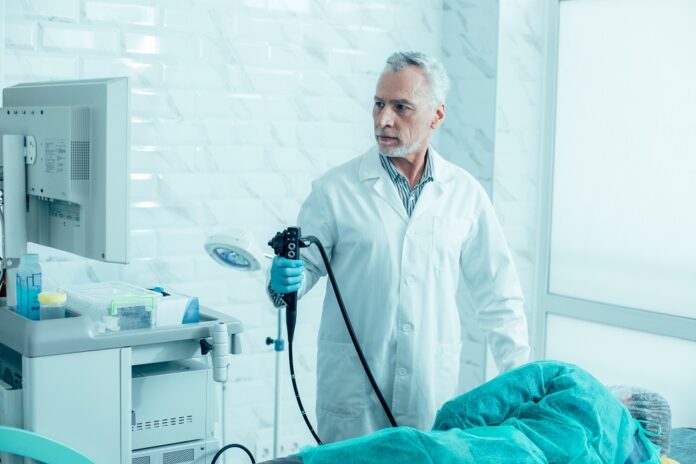If you’re having digestive problems, you may have heard of gastroenterologists. But what exactly do they do? And how can they help you? In this article, we’ll answer these questions and more. Read on to discover what a gastroenterologist does and how they can help you.
What is a Gastroenterologist?
A gastroenterologist is a doctor who specializes in diagnosing and treating diseases related to the digestive system, which includes the esophagus, stomach, small intestine, colon, liver, pancreas, gallbladder, and rectum. They are experts in dealing with issues related to the gastrointestinal tract as well as other organs that play an important role in digestion. Gastroenterologists are certified by the American Board of Internal Medicine (ABIM) after completing specialized training in gastroenterology.
Diagnosing Digestive Issues
Gastroenterologists are experts in diagnosing and treating digestive issues. They will use various diagnostic tests such as endoscopic exams, colonoscopies, imaging tests (CT scans or MRI), blood tests, stool tests, biopsies, ultrasounds, or x-rays to determine the cause of your symptoms. Once they have identified the issue, they will develop a personalized treatment plan tailored to your needs.
What Does a Gastroenterologist Do?
Gastroenterologists diagnose and treat diseases affecting the digestive system using non-invasive techniques such as endoscopy and colonoscopy and medical treatments such as medications. They also provide preventive care, including screening tests for gastrointestinal cancers such as colorectal cancer screenings. Additionally, they perform procedures like upper endoscopies or colonoscopies to diagnose any potential problems within the digestive tract. They also offer lifestyle advice, such as dietary changes or stress management tips to improve overall health.
Treating Digestive Issues
Gastroenterologists are trained to provide both surgical and nonsurgical treatments for digestive issues. Depending on your specific condition and symptoms, the doctor may recommend medications such as antibiotics or anti-inflammatory drugs to reduce inflammation or control pain. In some cases, surgery may be necessary if other treatments do not work or if there are complications from an existing condition. The doctor will explain all available options so you can decide which option is best for you.
How Can a Gastroenterologist Help You?
Gastroenterologists comprehensively diagnose and treat digestive disorders ranging from minor abdominal pain to complex diseases affecting multiple organs. By seeing your gastroenterologist regularly, they can monitor your condition over time and provide early detection if any issues arise in order to ensure better outcomes for patients suffering from various digestive problems. Additionally, because most of these problems are often chronic conditions that require long-term management rather than an immediate cure, regular visits with your gastroenterologist will be beneficial for keeping your condition under control over time.
Preventative Care
Gastroenterologists also provide preventative care measures to help reduce your risk of developing certain digestive conditions or diseases. This could include lifestyle changes such as eating a balanced diet and getting regular exercise and recommendations for supplements or vitamins that could help improve digestion or boost immunity against certain infections. Your gastroenterologist can also advise on identifying early warning signs of potential problems so that you can seek treatment before it becomes serious.
A gastroenterologist is an expert in diagnosing and treating diseases related to the digestive system who has undergone specialized training through ABIM certification. These doctors use both non-invasive techniques such as endoscopy and medical treatments such as medications to diagnose and treat illnesses affecting multiple organs within the gastrointestinal tract. Moreover, they offer preventive care, including cancer screenings, which can help detect potential issues before they become serious – allowing them to give you better outcomes for your condition with lifestyle advice such as dietary changes or stress management tips that can improve overall health time. Seeing your local gastroenterologist regularly will ensure optimal care for any current or future conditions you may have related to digestion!















